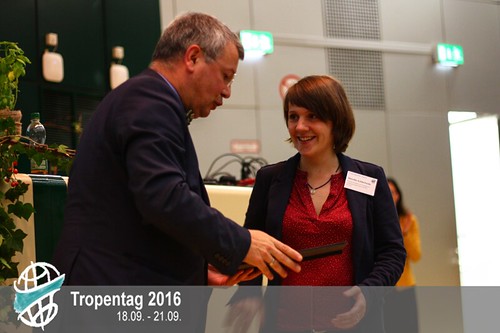Reply to comment
Check the Hans H. Ruthenberg Award for Graduates 2016 Here!
Mon, 09/19/2016 - 21:12 — FadliThis year independent scientific jury finished their assessment. Three winners with excellent research theses have been selected. Thirteen applicants submitted their theses this year. In order to be reckoned, the research should fulfil requirements such as academic excellence, scientific evidence, and it should address improvement in food security. However, for next year, the jury hopes that there will be more entries from international student. Take a look at the Hans H.Ruthenberg Award for Graduate 2016 winners and their excellent works.
Mareike Aufderheide-Voigts

Mareike studied reproductive performance and modelled herd development of cattle kept. Borana pastoralists as dominating ethnic group in Sothern Eithiopia focus on keeping Boran cattle. During her field research, the student from Kassel-Witzenhausen University, found a different grazing system: families are split up between two grazing areas and the cattle are seasonally moved from one to the other section. In this sense, families practice an almost sedentary lifestyle, while the animals are still managed somehow as mobile. This usual procedure proved to improve food security in the region.
Jonathan Steinke

The student from Humbolt University of Berlin tested out a new approach that involves farmers into climate change adaptation and food security. In his theses “Citizen Science with Resources-Poor Farmers as a New Approach to Climate Change and Food Security”, he shows his involvement with farmers in the conduction of a crop-seed improvement project. By following this path, he aimed at reducing discrimination of seed innovation and conducting a rapid and low cost agriculture research. Most important, this can be a potential answer to the burning question “Can crowd science meet scientific standards?”. And, well, the award this research obtained speaks for itself.
Stefeen A.Schweizer

"What is the role of organic farming?" is the main question addressed by Stefeen's research. His work on the evaluation of soil's physical properties under long-term organic and conventional agriculture systems in Central India has shown the ultimate advantage of organic farming. In fact, under a long-term organic agriculture practice, soil tends to reveal better physical properties. Thus, stop doubt on organic farming!




